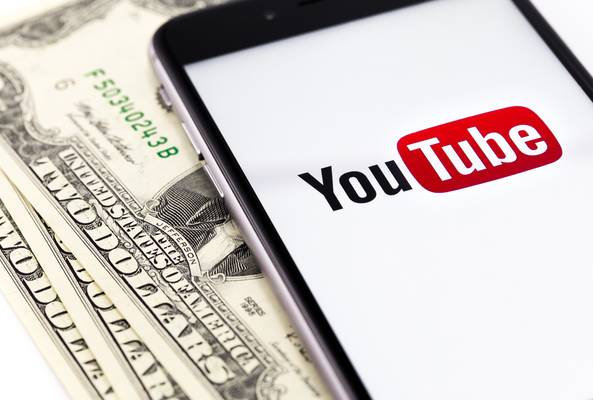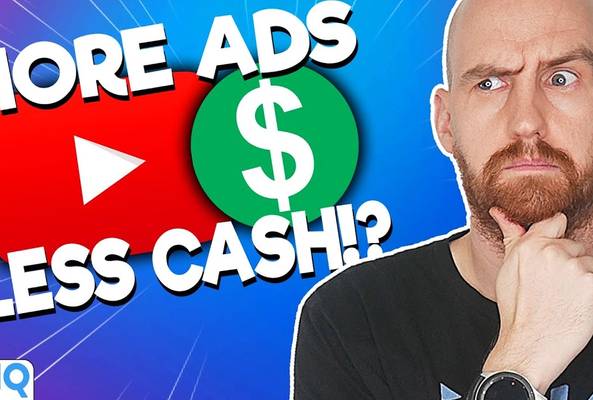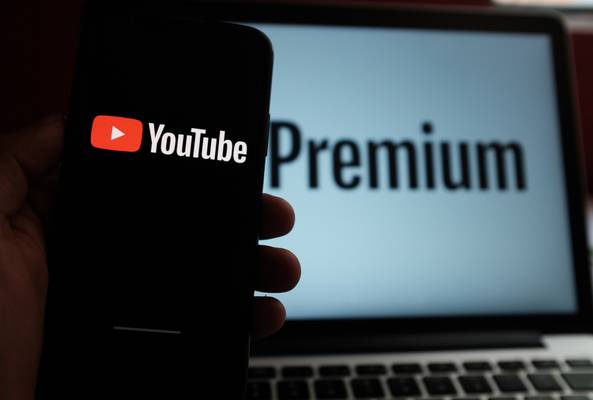Lydia Sweatt is a writer, bookworm, and bass guitar enthusiast. When she goes outside, a bicycle goes with her.
Can You Swear on YouTube and Still Make Money?

It's inevitable that while filming a video, many creators let slip a curse word or two. But somehow, by the grace of YouTube, many of them won't go on to experience widespread demonetization because of it. These creators continue to stay on YouTube’s good side, which means they can display ads on their videos and continue earning AdSense revenue.
Other creators haven’t been so lucky. They’ve uploaded videos that include profanity, then watched those videos get demonetized, and wondered where they went wrong.
Clearly, an important rule was either ignored by these creators or lost in translation. If some creators can get away with cursing while others can’t, where does YouTube draw the line?
The answer is in YouTube’s Community Guidelines, but it’s an explanation with several interpretations. Depending on which words you say, YouTube may restrict the advertisements on your video or ban them altogether.
Want to stay in the safe zone but also use “adult” words to express yourself? Here’s YouTube’s stance on profanity.
How YouTube Handles Profanity In Videos
Before you let those curse words fly, consider this warning from YouTube’s support page:
“Content that contains frequent uses of strong profanity or vulgarity throughout the video may not be suitable for advertising. Occasional use of profanity (such as in music videos) won’t necessarily result in your video being unsuitable for advertising.”
As you can see, a video with strong profanity is at risk of demonetization. If you use strong expletives frequently, the likelihood of earning little to no money increases.
But which words can creators say and what is considered strong profanity?
What YouTube Considers "Mild Language."
There are a few different categories of inappropriate language on YouTube. But to keep things simple, just know that light profanity, such as “hell” and “damn” are less risky. YouTube says you can enable ads on videos containing those words, so no worries there.
However, swear words that are lewd and insulting will result in demonetization. So avoid dropping frequent F-bombs, racial slurs, and other derogatory phrases. That’s the kind of language many advertisers want to avoid, and using it will affect your revenue.
What You Say at the Beginning of a Video Matters
Last year, YouTube clarified the most important things to know about profanity and how it affects monetization. In a video from Creator Insider, the team revealed that how often profanity occurs at the beginning of a video is a key factor.
For more information, watch the video below:
Top Tip: It’s best to avoid profanity, as that’s the only way to follow YouTube’s guidelines flawlessly. But if you have to say some risky words - especially if they’re crucial to the main idea - save them for later in the video.
Profanity on YouTube: Is Demonetization The Only Consequence?
If you’ve read YouTube’s Community Guidelines, you won’t be surprised to learn that demonetization is just one consequence of swearing on YouTube. When you mix lewd, dehumanizing words with content that incites violence against specific groups of people, that’s a serious offense.
YouTube calls this hate speech, and every creator should avoid it. The only exception is when the creator’s intent is to educate viewers on a certain subject, as in the documentaries you’d watch on TV.
This is an important distinction because if YouTube thinks a creator has bad intentions, their video(s) could be removed from the platform. And if that creator keeps violating the rules, YouTube has the right to terminate their channel.
Our advice is to always play it safe. You have permission from YouTube to use mild language, but the platform changes its rules all the time. If you can avoid swearing at all, that’ll keep your channel monetized and in good standing for years to come.



